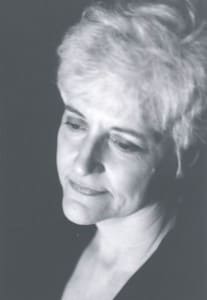

We trust that the ones we post on Nine Points will provide readers with companions along their own paths, and a better understanding of all styles.
Over the years, I’ve interviewed people of all nine Enneagram styles about their everyday experience of the transformation process. In the beginning, I naively expected the path to be somewhat linear. Even more naively, I thought there might be a point of arrival. From my own experience and reflections by many others, however, I’ve found that observing and letting go of habitual patterns is a complex and continuing journey.
Many people have recalled a strengthening of their self-esteem as they first matured emotionally, which could be seen paradoxically as deepening their Enneagram trance. But these people were clearly shifting to a new and necessary self-awareness and self-acceptance.
In Paths Beyond Ego John Engler wrote, ‘You have to be somebody before you can be nobody,’ suggesting we can’t surrender our ego-patterns until we’ve developed a sense of self and can begin to see how that self operates. This strikes me as a great truth and explains what I’ve found in these interviews. Respondents typically grew into their personalities before they could begin to surrender. Furthermore, they seem to go in and out of somebody and nobody, depending upon the particular aspect of self under scrutiny and the nature of their worldview and life experience.
An Enneagram Two said, for example, ‘My parents had been critical, and my husband cut me down all the time. I was miserable, even thinking about taking my life. But I realized, Hey, I’ve got four children. I have to find a shrink. Until therapy, nobody in my lifetime had ever told me I was good, sensitive, caring. That was transforming.’ She was clearly becoming somebody.
Another Two said, ‘My worldview has become far more expansive. I have let go of a lot of control needs. I’m in a relationship predicated on health and respect for individuality.’ This sounds more like becoming nobody, but for all we know that could have been simply a peak in his lifelong trek.
An additional complexity I’ve found is that Enneagram worldviews are so deeply rooted they may trick us into thinking our witness is the nobody essence when, actually, somebody is still in charge. A Nine said, for example, ‘For me the quest has involved figuring out where and how I begin to negate myself. To my horror, I discovered the voice I thought was a built-in Buddhist spiritual director (What’s the compassionate thing to do here?) was only another way to lose my self in being a ‘good’ Nine, a rationale to erase myself and merge with others’ needs.
How do you know when it’s your essence calling and not ego? In answer to this question an Enneagram Five said, ‘Trying to make this distinction is metaphysical balderdash. I trust that whatever is happening is all I have to work with, no less, no more. I don’t believe it’s possible to be off the path.’
As you read the essays to follow, decide for yourself. Is it possible to be off the path? Does it make sense that some of our transformational experiences prepare us to have a self before we can begin transforming to no-self? Is the path straightforward?
Mary Bast, PhD, coach and coach mentor, is co-author of the first Enneagram coaching book, Out of the Box: Coaching with the Enneagram, and author of several coaching workbooks. More information at www.breakoutofthebox.com.

